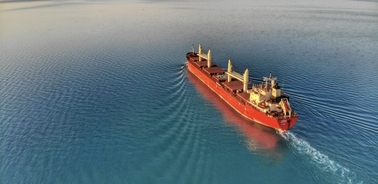The Google Maps of the Ocean

IE Research Datalab organizes a workshop on Optimization of Maritime routes at the Royal Academy of Sciences.
Everyone who drives a car knows this: the best route is not always the shortest one. The same is true for maritime transport: there are also highways and secondary roads in the ocean, but they are hard to see and constantly changing. A research team at IE University led by Prof. David Gómez-Ullate is building the Google Maps of the Ocean: a weather routing system to find the optimum route in a constantly changing and uncertain environment.
The project “Mathematical optimization for a more efficient, safer and decarbonized maritime transport” uses artificial intelligence, data science, mathematical modelling and optimization to improve the current routes operated in maritime transport, in order to save fuel and reduce emissions. The project is funded by the BBVA Foundation and includes 22 researchers from 10 institutions and 5 countries including mathematicians, naval engineers, meteorologists, data scientists and software engineers. The results of this project can have a significant impact on the decarbonization of maritime transport.
Last week, IE Research Datalab organized with the Spanish Scientific Research Council (CSIC) a workshop devoted to technological advances for environmental monitoring. The workshop was hosted at the emblematic building of the Spanish Royal Academy of Sciences in Madrid.
Three researchers from IE Research Datalab delivered talks in the special session:
- David Gómez-Ullate gave a plenary talk introducing the problem of weather routing, the required data, models and optimization methods and giving a broad perspective on the history and economic implications of this technology.
- Daniel Precioso gave a talk on the Hybrid Search optimization method with 4 benchmark examples on real navigation routes, as part of the research on his PhD.
- Rafael Ballester gave a talk on a different approach to the optimization problem using Bézier curve parametrization and evolutionary algorithms for an efficient optimization.
The session also included talks from Fernando Cañavate and Jose Enrique Gutiérrez, two naval engineers working on different aspects of this project.
For those who want to know more about the project, the session was recorded and the videos are available in the Youtube channel of the Royal Academy of Sciences.